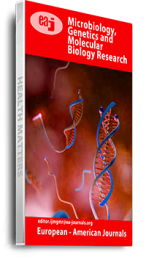Blighia sapida seed has been reported to have some levels of toxic substances when consumed. Most of these substances can be transferred to the oil during extraction thereby increasing the health risk of the oil. Sprouted Blighia sapida seed oil was evaluated to see if the reactions that take place during germination could reduce this toxic effect and increase its industrial values. These results were obtained for the physico-chemical properties: Oil Yield (%)(15.500±0.02), Refractive index (1.4615±0.01), Specific gravity (0.9140±0.01), Acid value(mg/g)(25.10000.10), Iodine value(g/100g)(27.50100.20), Saponification value(mg/g)(225.30000.20), Peroxide value(mmol/kg)(4.24000.20) and Free fatty acid(mg/g)(oleic)( 7.07820.10) respectively. The Fatty acid composition of the oil were Palmitic Acid (C16:0)( 32.3349), Stearic Acid (C18:0)( 5.2555), Arachidic Acid(C20:0)(0.8528), Behenic Acid (C22:0)(0.6326) and Lignoceric acid(C24:0)(0.3061) as polysaturated fatty acid with abundance in Palmitic Acid respectively. The monounsaturated fatty acid were Oleic Acid (C18:1)( 45.7362), Palmitoleic Acid (C16:1)(0.7655), Erucic Acid (C22:1)(0.4601) and Linoleic Acid (C18:2)(11.6010) and Lenolenic Acid (C18:3)(0.9773) as polyunsaturated fatty acid. The antibacterial activity of the oil from Blighia sapida seed indicated that the oil is susceptible to some pathogenic organism like Escherichia Coli(4.00 0.01) and Staphylococcus aureus (2.00 0.02), but had no effect on Proteus, Pseudomonas Spp and Klebsiella pneumonia. These results indicated that the oil from sprouted Blighia sapida seed had industrial and pharmaceutical value than the raw Blighia sapida seed oil.
Keywords: Akee apple, Antibacterial, Sprouted, fatty acid, oil, physico - chemical

